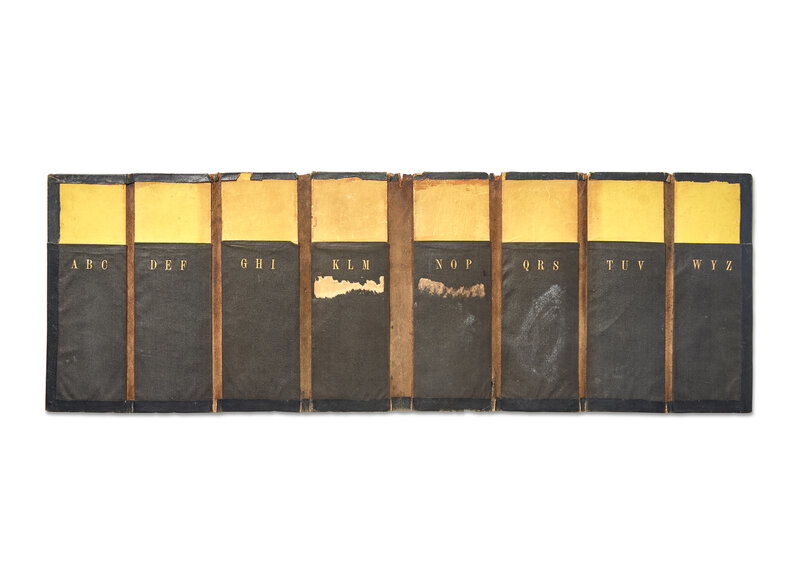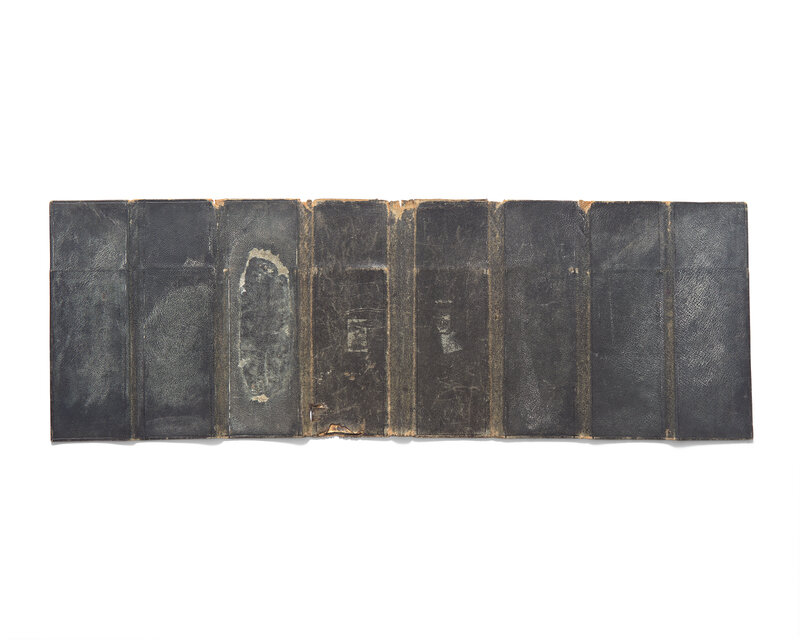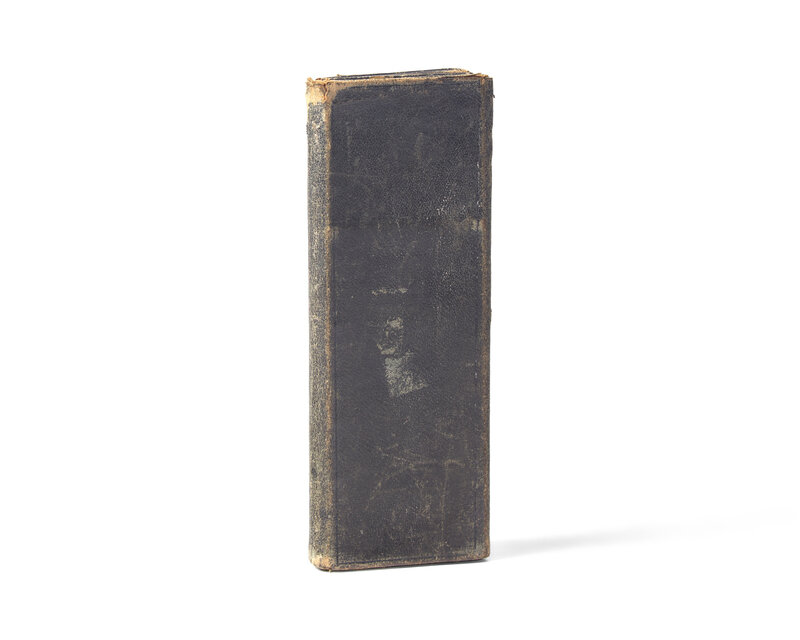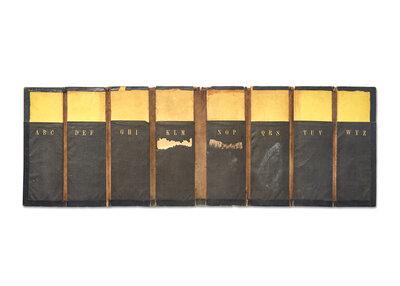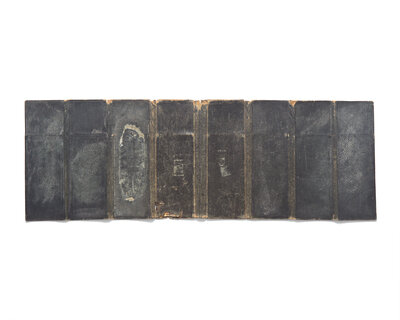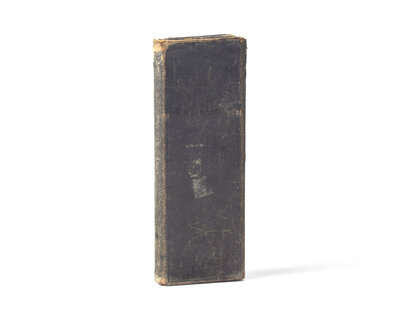Condition Report
Contact Information
Auction Specialist
Lot 11
Sale 6441 - Lincoln’s Legacy: Historic Americana from the Life of Abraham Lincoln
May 21, 2025
10:00AM CT
Live / Chicago
Own a similar item?
Estimate
$20,000 -
30,000
Price Realized
$17,920
Sold prices are inclusive of Buyer’s Premium
Lot Description
[LINCOLN, Abraham (1809-1865)]. A wallet-style leather bill-book purportedly owned by Lincoln. Ca. 1840s-50s.
Leather bill book with eight narrow compartments for filing papers, each alphabetized with three gilt letters at top edge; 9 1/4 x 3 3/4 in. (235 x 95 mm) (folded); 9 1/4 x 26 1/2 in. (235 x 673 mm) (open). Rubbing; abrasions; some minor losses to outside cover.
LINCOLN THE LAWYER.
While serving as postmaster in New Salem, Illinois and following his loss for a seat in the Illinois House of Representatives, Abraham Lincoln decided to dedicate himself to the study of law. Rather than apprentice under an established attorney Lincoln borrowed law books from attorneys Thomas Drummond and John Todd Stuart (with whom he served with in the Black Hawk War). After being admitted to the bar in 1836 Lincoln moved to Springfield and took a position as a junior lawyer to Stuart. Lincoln found himself with a full caseload on account of his partner being consumed with his campaign for a seat in the U.S. House of Representatives. Following his marriage to Stuart's cousin Mary Todd in 1842, Lincoln entered into a new partnership with Stephen T. Logan, with him again as junior partner. Two years later Lincoln, along with William Herndon formed their own Law Office, with Lincoln this time in the senior role.
Contemporaries would later remember Lincoln as a skilled lawyer, particularly combative in the courtroom during cross examinations and closing arguments. Twice a year he spent ten consecutive weeks "riding the circuit," with a particular affinity toward cases relating to westward expansion. Over the course of his law career Lincoln appeared before the Illinois Supreme Court 175 times, and from 1853-1860 represented the Illinois Central Railroad on multiple occasions. Eventually Lincoln's legal reputation led him to become known as "Honest Abe" to friend and foe alike.
Wallet-style bill books such as these were in common use among lawyers, allowing for the filing of documents which could then be easily stored. Famous for storing important documents in his tall hat while riding the circuit, one can easily imagine a bill book such as this being an asset to the young lawyer.
Found in one of the compartments was a torn portion of a legal deed concerning a woman's dower rights from Sangamon County, ca. 1840s, with two minor notations, presumably in Lincoln's hand; 5 1/2 x 3 3/4 in. (140 x 95 mm).
In Historic Furnishings Report: The Lincoln Home (Menz, U.S. Department of the Interior, 1 November 1983), an affidavit, dated 2 May 1925, is given by Mary Edwards Brown (1866-1958), grand-niece of Mary Todd Lincoln and former custodian of the Lincoln family home in Springfield; it lists a "Bill book used and carried by Abraham Lincoln while in Springfield, Illinois" (item 7). Brown's testimony is as follows: "I, Mary Edwards Brown, of the City of Springfield, in the county and State aforesaid, do hereby certify that I am the grand-daughter of that Ninian Edwards who, in 1833 married Elizabeth P. Todd, a sister of Mary Todd, afterwards the wife of Abraham Lincoln; that Mary Todd lived with her sister, Mrs. Ninian Edwards, and was married to Abraham Lincoln at her home in Springfield, Illinois; and that the articles hereinafter enumerated belong to me, having come into my possession by inheritance from various members of the Edwards family", pp. 388-391.
Provenance:
Louise Taper, Beverly Hills, California
Exhibition:
The Last Best Hope of Earth: Abraham
Lincoln and the Promise of America, at the Huntington Library, October 1993-August 1994.
Property from the Abraham Lincoln Presidential Foundation
